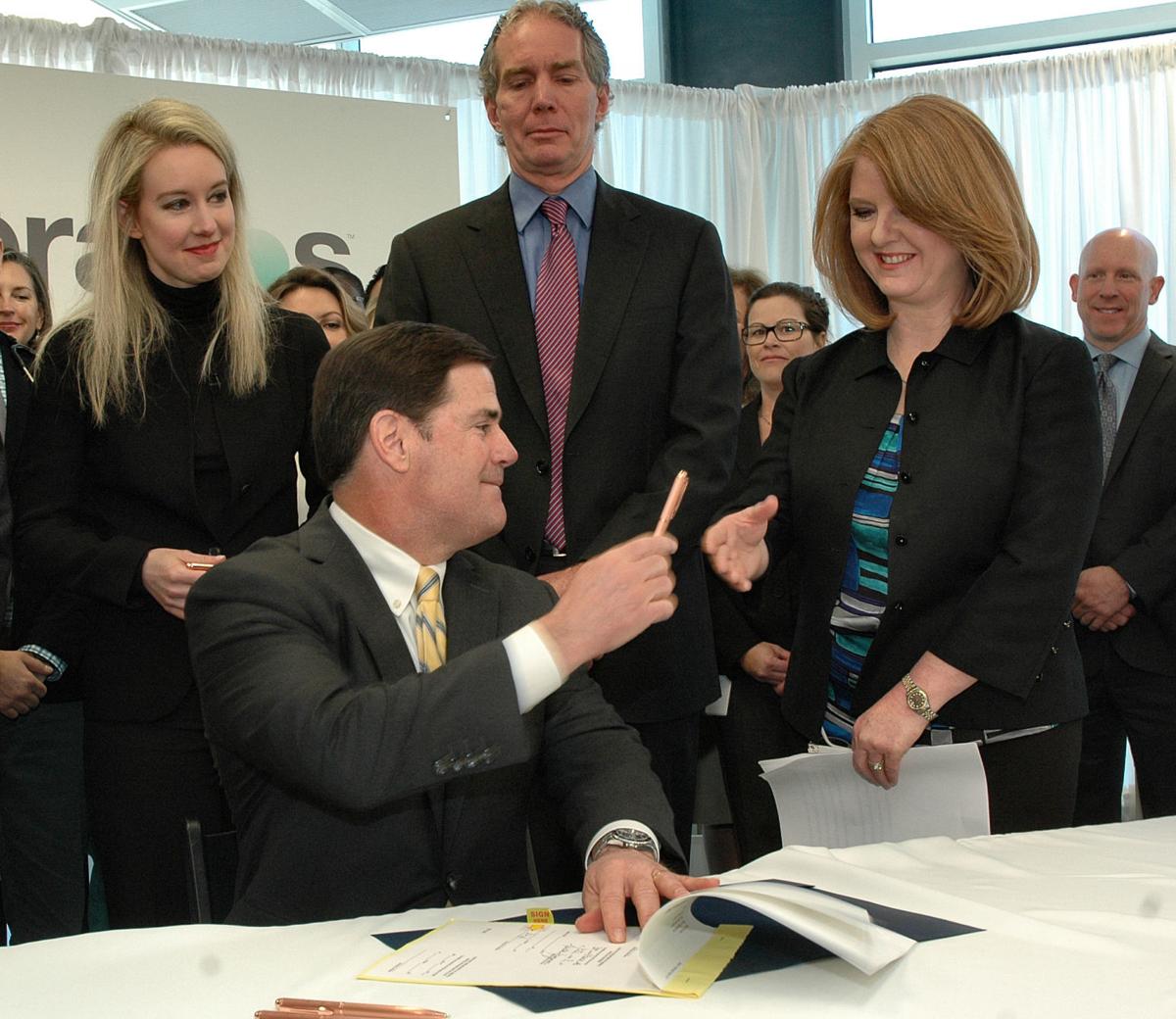PHOENIX т A California firm that parlayed a change in УлшжжБВЅ law to generate business here was charged Wednesday by federal regulators with defrauding investors with false claims about its technology т the very technology that was cited in amending the state law.
Attorneys for the Securities and Exchange Commission contend in a new lawsuit filed in federal court in California that Theranos Inc. and founder Elizabeth Holmes raised more than $700 million while making it appear the company had successfully developed a portable blood analyzer that could perform a full range of laboratory tests from a small sample of blood.
тThey deceived investors by, among other things, making false and misleading statements to the media, hosting misleading technology demonstrations, and overstating the extent of Theranosт relationships with commercial partners and government entities, to whom they had also made misrepresentations,т the lawsuit says.
People are also reading…
The legal papers also say Theranos, Holmes and Ramesh Balwani, the companyтs former president, claimed the companyтs products were deployed by the Department of Defense in Afghanistan and that it would generate more than $100 million in revenues from that deal. As it turned out, the SEC charges, there was never such a deployment and the company generated only about $100,000 from its operations that year.
In a prepared statement from Theranos, the company said it and Holmes have agreed to settle, with Holmes paying a $500,000 fine, relinquishing control of the firm, and becoming ineligible to serve as a director or officer of a publicly traded company for 10 years. She also will return about 19 million shares she obtained during the fraud.
And if the company is sold or liquidated, Holmes would not get a cent until more than $750 million is returned to defrauded investors and other preferred shareholders.
The case against Balwani will go to court.
тInnovators who seek to revolutionize and disrupt an industry must tell investors the truth about what their technology can do, not just what they hope it might do someday,т Jina Choi, director of the SECтs regional office, said in a prepared statement.
It was that claim of being able to run tests with just a small amount of blood that led to attention not just by investors but also state lawmakers.
In 2015, УлшжжБВЅ lawmakers voted to make it easier for Theranos to market its testing services directly to УлшжжБВЅ consumers. The measure, which Gov. Doug Ducey signed at a ceremony in Scottsdale with Holmes, removed all the limits on the kind of blood, urine and other tests that patients could order on their own without first getting a doctorтs order.
As it turned out, the accuracy of some of those tests was questionable at best.
Last year Attorney General Mark Brnovich got the company to enter into a consent decree to refund more than $4.6 million to УлшжжБВЅns who got the tests.
Attorneys for the company denied it violated the stateтs Consumer Fraud Act by selling blood tests in which the results were not always accurate. But they conceded that more than one out of every 10 of the test results given to УлшжжБВЅns by the company were тultimately voided or corrected.т
According to the Attorney Generalтs Office, Theranos sold 1.5 million blood tests to more than 175,000 УлшжжБВЅ residents between 2013 and 2016.
Theranos was separately sued by Walgreens, which had allowed the company to make its tests available to its customers at 40 of its УлшжжБВЅ stores. That case was settled out of court. The terms were not disclosed.
On Twitter: @azcapmedia











